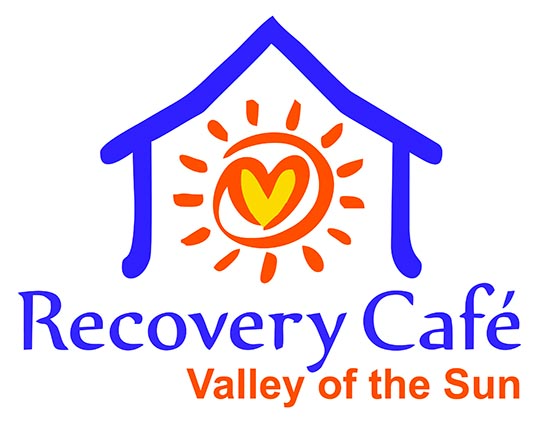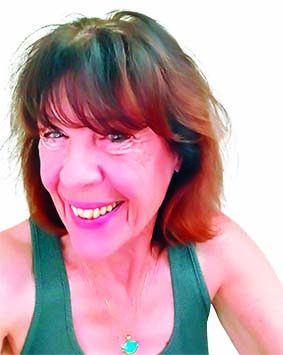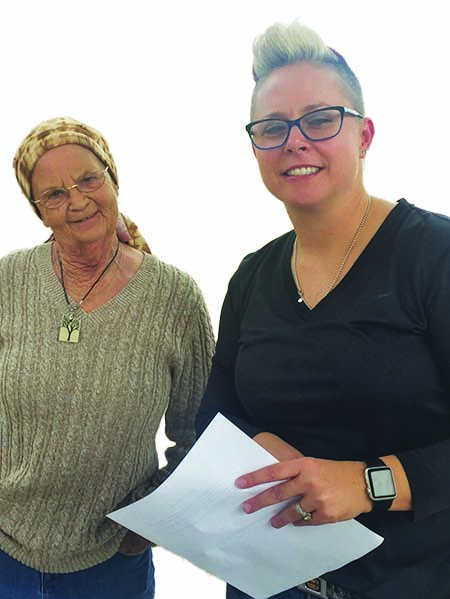Spotlight on Lee Yaiva, CEO Scottsdale Recovery Center What propelled into sobriety? I was active in addiction from age 13 and embraced recovery at 27. I reached the point...
Spotlight on Lee Yaiva, CEO Scottsdale Recovery Center
What propelled into sobriety?
I was active in addiction from age 13 and embraced recovery at 27. I reached the point where my behavior wasn’t conducive to my life’s purpose and I became conscious of that. I had relinquished the responsibility of having a family, job, and driver’s license — let alone my pride, dignity, and self-respect. I wanted all of that back. Getting sober provided a new beginning to build my life on a foundation of recovery. It gave me the stability to support my trajectory into a future I deserved and was entitled to.
Any recommendations for someone wanting to get sober, but they may not be fully committed to the process?
My recommendations are linear. If someone feels the need to ask the question “Am I an addict?” they are aware of a problem. I would ensure they understand the distinction of their pursuit and give them insight on the differences between recovery and sobriety. There is one. I would encourage them to get guidance from people who are actively engaged in their recovery, so they can make an informed decision rather than emotional one. Our emotions often dictate what we do or don’t do, and will likely prompt immobility based on fear, uncertainty, and frustration and cause some individuals to stop the process. Plan, execute, follow through. Set boundaries for yourself and others to adhere to…then let go.
With the overabundance of websites offering treatment, how do we determine the trusted legitimate facilities?
I would encourage everyone to vet facilities they are considering. Read reviews on adherence to credentialing, and that licensure is in good standing. Evaluate how long the entity has been in business. You can gain valuable insight from trusted professionals who work in the field.
Recently there has been a significant increase in providing services to our American Indian populations, and a gap in facilities that adequately establish themselves as a provider who understands the intricacies of servicing Native Americans.
Ask specific questions and challenging proficiency should be encouraged. If you know what treatment services you are looking for, (trauma informed care, medical support services, dietary accommodations, other modalities offered). How will your needs will be met? If your questions aren’t answered with confidence or conviction, move on.
Are you seeing an increase in people wanting help to get off opioids, fentanyl?
Yes. Absolutely. There has been a significant increase in use which prompts support services to help people before it’s too late. At Scottsdale Recovery Center we are equipped to accommodate the need —too many lives have been lost.
There is strength in community, how does SRC incorporate continuing care after discharge?
We think of it as Family for Life. This is what SRC stands behind and reinforces on all levels of care. Upon successful completion of treatment, we have a robust alumni program called “Scottsdale Recovery Continued” and our program 33 Degrees that extends care beyond the typical program structure.
We always welcome former clients back to offer their experience, strength and hope to our groups, which adds a layer of connectedness. We have an occupational track supported by peer support certification. There is no better way to maintain engagement, than to support our clients evolution personally and professionally. An individual on the service side after receiving care from us can adequately represent the agency and their own journey in recovery.
Talk about “REZTORATION HEALTH and HEALING”
Reztoration Health and Healing is an example of the understanding required to provide adequate support to American Indian populations. Developed by Natives, facilitated by Natives, utilizing traditional and cultural practices to accommodate the need. “Restoring Indigenized healing through cultural and traditional practice” is our mission statement.
Rezilience speaks to the history of indigenous peoples that will prompt pride, cultural identity, and the strength of our people. Rezolution speaks to acceptance, finding peace, accountability and turning the pain to power.
Rezurrection speaks to the evolution of the human spirit. Reclaiming one’s life to take back everything that rightfully belongs to you. This serves as an added component to the existing clinical program structure so individuals will receive the best of both Western world medicine and treatment modalities but also the applicable measures that reinforce traditional practice and identity.

REZTORATION HEALTH & HEALING
REZILIENCE. REZOLUTION. REZURRECTION.

Restoring indigenized healing through cultural and traditional practice.
What is most rewarding being CEO of Scottsdale Recovery Center?
I give a tremendous amount of gratitude and respect to Michelle Siwek for not only affording me the opportunity, but trusting me to lead the way that is unique to me.
Integrity is especially important and in order for the operation to function successfully, it requires I immerse myself in everything. It is common to see me facilitate groups, coach clients on how to navigate their evolution into recovery, break bread with staff or attend outside activities for social interaction that solidifies our bond.
I have the privilege of working alongside people who share the vision and naturally exude the innate qualities that make what we do effortless, or at least appear that way. They get to be people. Not necessarily acknowledged by role and function, but by who they are as individuals. Working alongside others is a gift and you either have it or you don’t. Innate qualities cannot be taught. I am so fortunate I was afforded an opportunity that allows me to just be me. I always tell people, I’m the Director of Sanitation for the organization. I am here to alleviate you of your trash and dispose of it accordingly, so we can create room for love, self-respect, pride, dignity, joy, security, and happiness. CEO is a title, and the platform allows me to have more of a reach than I typically would. It is an honor, privilege, and pleasure to be a part of an individual’s journey in the reclamation of life. scottsdalerecovery.com 602-346-9142
Lee Yaiva brings a wealth of knowledge and 16 years of experience in behavioral health and addiction treatment as Chief Executive Officer at Scottsdale Recovery. Mr. Yaiva has served as the tribal liaison for numerous campaigns targeting culturally specific endeavors, incorporating a holistic approach to health and healing that is innate. Lee’s passion for people and respect for the recovery process is evident in his distinct style and meticulous order in acquisition of identified objectives. Lee’s commitment to empower utilizing a methodical approach to the reclamation of life is strategic and impactful. Lee’s mission is to create an opportunity of a lifetime for a lifetime of opportunities for all people.































